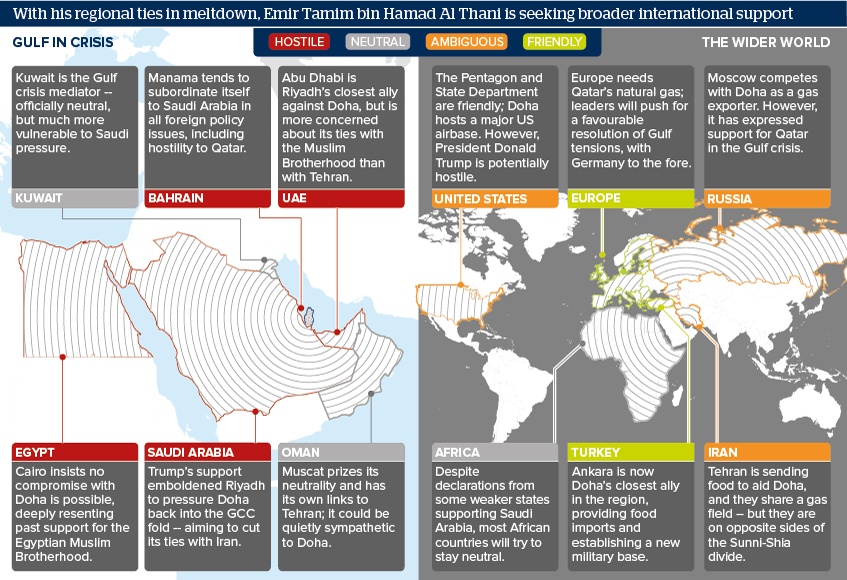Qatar’s ‘independent’ foreign policy will be costly
The crisis in the Gulf Cooperation Council (GCC) has radically upset Doha’s foreign relations
Source: Oxford Analytica
Outlook
The Gulf crisis, which began on June 5 when four Arab states launched a sudden and comprehensive boycott of Qatar, has thrown the country’s regional relations into disarray. In an effort to placate its enemies without losing face, Doha will seek to curb financing of Islamist groups, tinker with Al Jazeera’s editorial guidelines and expel opposition activists from other Gulf states. It will prioritise ties with Washington as the best possible route to resolution.
However, Qatar’s enemies are determined to see a public end to its long-standing ‘independent’ foreign policy. They will likely fail to bring its actions into line with the GCC leaders, but could exact a high economic price.
Impacts
- A protracted crisis could force Doha into uncomfortably close reliance on Tehran, deepening Gulf divisions.
- Qatar’s strategy of depending on US State Department advocacy might fall foul of US domestic political power shifts.
- Qatar’s enemies may call for regime change, but there are few available options short of unlikely military intervention.
- Foreign workers, many from South Asia, are the most vulnerable to the economic impact of the Gulf crisis.
See also
- Qatar’s WTO complaint could discomfit its enemies - Aug 1, 2017
- African states hope the Gulf crisis will end soon - Jul 7, 2017
- More graphic analysis
